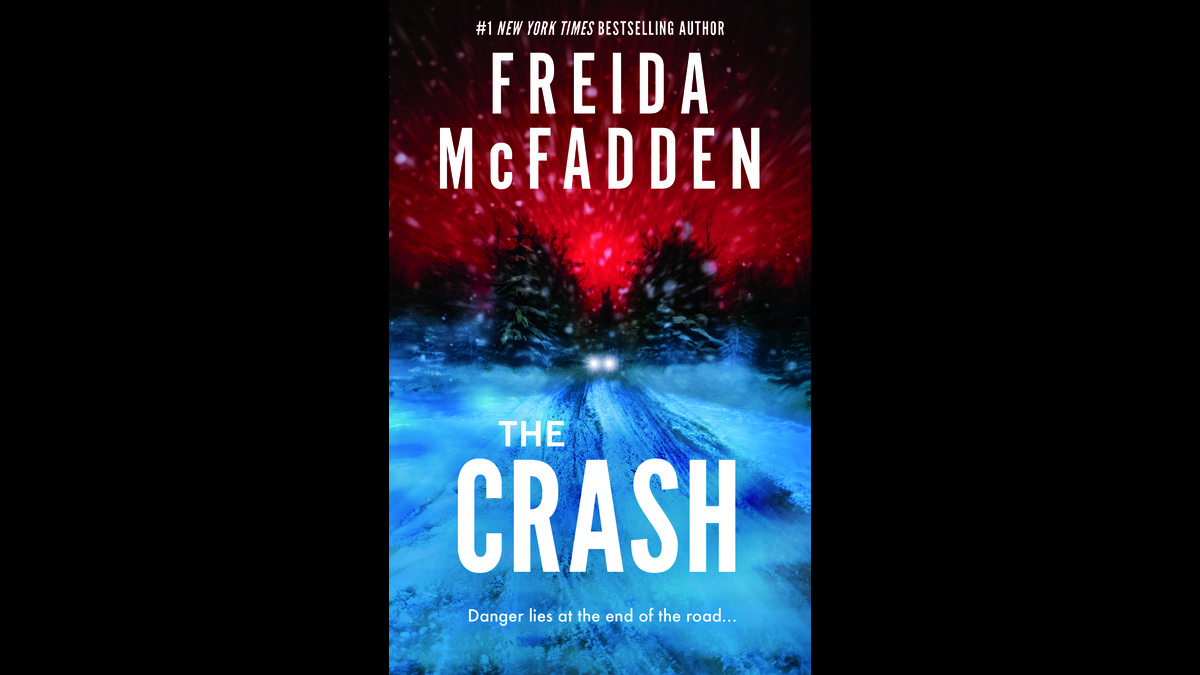⭐
Title: The Crash
Author: Freida McFadden
Published: January 2025
Genre: Mystery, Suspense, Thriller
Have you ever eagerly anticipated a new release from a favorite author, only to find yourself questioning whether they actually wrote it? That’s exactly the bewildering experience I had with Freida McFadden’s latest thriller, “The Crash”—a book that left me checking the cover repeatedly to confirm it was indeed penned by the same mind behind the brilliant “The Handmaid” series.
As someone who’s devoured psychological thrillers for over a decade, I’ve come to expect certain things from McFadden: intricate plotting, mind-bending twists, and characters who make you question everything you thought you knew. But “The Crash” feels like it skidded off the road long before reaching any meaningful destination.
A Premise of Promise, A Delivery of Disappointment
The setup certainly had potential: Tegan, eight months pregnant and desperate to escape her crumbling life, hits the road during a blizzard only to become stranded in rural Maine with a broken ankle and a dead car. When a seemingly kind couple rescues her and offers shelter in their cabin, what initially feels like salvation gradually reveals itself as something far more sinister.
It’s a classic trapped-in-isolation scenario that should create palpable tension. Should. But doesn’t.
The problem isn’t the premise—it’s the execution. Where McFadden’s previous works masterfully built suspense through layered revelations and psychological complexity, “The Crash” delivers a disappointingly linear narrative that lacks the subtlety and ingenuity her readers have come to expect.
Character Roadblocks
Tegan, our protagonist, unfortunately falls into the trap of making decisions so illogical they pulled me right out of the story. I’m all for characters making mistakes—that’s how tension builds in thrillers—but there’s a difference between understandable human error and plot-convenient stupidity.
The antagonists fare no better, coming across as one-dimensional villains whose motivations feel hastily sketched rather than thoughtfully developed. Their behavior often contradicts itself, not in the intriguing way that suggests psychological complexity, but in a manner that feels like inconsistent writing.
Even the supporting characters seem to exist solely as plot devices, entering and exiting the narrative without leaving any meaningful impression. In contrast, McFadden’s earlier works like “The Locked Door” and “D Ward” featured secondary characters who added genuine depth to the story.
When the Twist Doesn’t Turn
Perhaps the most disappointing aspect of “The Crash” is its lack of the mind-bending twists that made McFadden’s previous books so compelling. I kept waiting for that moment—that perfectly executed revelation that would make me gasp and frantically flip back through pages to spot the clues I’d missed.
It never came.
Instead, the narrative plods toward a conclusion that feels not only predictable but underwhelming. The “reveals” land with all the impact of a snowflake in the blizzard that strands our protagonist—barely noticeable and quickly forgotten.
Setting Without Atmosphere
One of the few elements that could have saved this book was its setting. A remote cabin during a blizzard should create instant atmosphere—that claustrophobic sense of being cut off from the world, where danger feels more immediate because help is so far away.
Yet even here, McFadden fails to capitalize on the setting’s potential. The snowstorm feels more like a plot convenience than an oppressive force of nature, and the cabin never develops the creeping menace that should make readers feel Tegan’s growing unease.
Compare this to the institutional dread perfected in “D Ward” or the slowly unraveling domestic sanctuary in “The Son,” and the difference is stark. Those environments became characters in themselves; the cabin in “The Crash” remains merely a backdrop.
A Concerning Trend?
This misstep raises questions about whether McFadden might be facing the pressure many successful thriller authors encounter—the demand to produce books at a pace that compromises quality. In today’s publishing landscape, where algorithms reward prolific output, even the most talented writers sometimes rush projects that would benefit from more development time.
I’m reminded of the recent discussions within the thriller community about sustainability in writing careers and the sometimes impossible expectations placed on authors to maintain both quality and quantity. Has McFadden fallen victim to these pressures? It’s hard not to wonder.
Final Thoughts: A Crash Indeed
“The Crash” ultimately lives up to its title, but not in the way McFadden likely intended. It’s a narrative collision that leaves readers with more disappointment than satisfaction, more questions about editorial oversight than about the story itself.
For devoted fans of McFadden’s work, this book may be worth borrowing (emphasis on borrowing, not buying) simply to form your own opinion. For newcomers curious about this author’s abilities, I’d strongly recommend starting with her earlier works—”The Handmaid” series, “The Locked Door,” or “The Son”—all of which showcase the talent that seems mysteriously absent from this latest offering.
What’s particularly frustrating is knowing what McFadden is capable of. The author who gave us such perfectly crafted psychological suspense in previous books seems to have taken a detour with “The Crash,” leaving readers like me checking the rearview mirror, hoping she’ll return to the road that made her work so compelling in the first place.
So what’s your take on authors who seem to drastically change their style or quality from book to book? Have you ever felt betrayed by a favorite writer’s new release? I’d love to hear your experiences in the comments below.
Disclaimer: This review reflects my personal opinion, and literary tastes vary widely. If you’ve read “The Crash” and had a different experience, I’d be genuinely interested in hearing your perspective.
